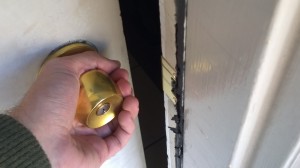
BYU, like many colleges, has seen an increase in sexually related crimes in 2014.
Provo Police reported approximately 325 incidents of sexual assault in Provo from May 2011 through September 2014, with crime rates rising as students return to school for fall semester each year.
This year, Provo has experienced a number of sexual assault cases, two of which involved BYU students as victims.
BYU student Nathan Fletcher, 23, was accused of groping two women on BYU campus during the spring, and his trial is currently pending. Sixteen similar incidents of groping were also reported on campus from January to March. Cyr Delinos Narcisse, 22, was recently sentenced up to 15 years in prison for entering a BYU-contracted apartment at Wyview Park and forcibly groping and kissing a woman earlier this year.
While the incidents are unrelated, they’re indicative of a nationwide problem across college campuses.
According to BYU Women’s Services, college students are common targets for assailants. Up to 25 percent of female college students nationwide have experienced a completed or attempted rape, and one in three Utah women are projected to experience some form of sexual violence during their lives, according to the organization. Women’s Services also reports only 9.8 percent of Utah victims report the incident to law enforcement.
Police also acknowledge that sexual assault is a real threat to college students.
“Our focus should be to reduce our risks of becoming a victim in any case,” said Lt. Mathew Siufanua, former public information officer for Provo Police. “There are three necessary elements to a crime: target, opportunity and desire. If we take away just one of these elements we will stop crime.”
While many assume sexual assault happens in dark alleyways and by unknown trespassers, police say that in most instances assailants are well acquainted with their victims and are often friends or colleagues. Police also caution students to be careful about online dating.
“We recommend that if you are going on a date with someone you’ve met online for the first time to only go on group dates,” said Lt. Brandon Post, Provo Police public information officer. “Also, don’t meet the person at their home or apartment. It should be in a neutral location in a group setting.”
Provo Police advises students to keep their doors and windows locked, to never walk or run alone at night and to be aware of their surrounding environment.
“Trust your instincts,” Post said. “If you’re feeling uncomfortable for whatever reason, or feel like something could be wrong, trust your instincts and get out of it.”
Siufanua said anyone can be a target at any given time. “The key is not to give them (assailants) the opportunity.”
BYU Women’s Services said victims of sexual assault often experience a number of symptoms after the incident, including flashbacks, nightmares, anxiety, depression and guilt. Dealing with these emotions can be difficult, but victims need not feel alone.
If you or someone you know has been a victim of sexual assault, harassment, rape or another form of physical or emotional abuse, support can be found at BYU Women’s Services, which is located in Room 3326 WILK on BYU campus. The office can be contacted at 801-422-4877.




